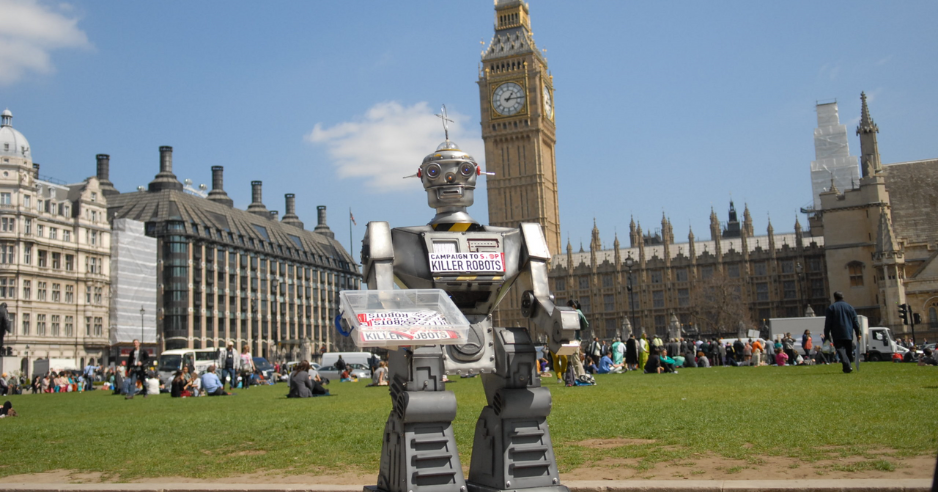
On 1 December 2023, the Lords AI in Weapons Systems Committee will publish its report on Artificial Intelligence in Weapons Systems. The Committee – which was established in 2023 following increasing parliamentary interest and the work of an informal group of committed parliamentarians – was appointed to consider the use of AI in weapons systems. From February until November the Committee met on an almost weekly basis to hear evidence from experts in fields such as academia, human rights and tech companies about/on how autonomous weapons systems (AWS) should be developed, used and regulated. Both the global campaign to Stop Killer Robots and the UK Campaign to Stop Killer Robots have provided oral and written evidence to the Committee.
In early June 2023, the Committee heard from Richard Moyes, Campaign Coordinator for the global campaign to Stop Killer Robots and Managing Director at Article 36 on the case for regulating AWS. At the end of June, the Committee heard from Taniel Yusuf, member of the UK Campaign to Stop Killer Robots and Visiting Researcher at the Centre for the Study of Existential Risk at the University of Cambridge. Taniel gave evidence on the risks posed by the development and implementation of AI Weapons Systems. Throughout the inquiry, the Campaign has been consistent in its calls for the UK Government to ensure that meaningful human control is maintained in the use of force and support the UN resolution on AWS. We were pleased that the UK was one of the 164 states who voted in favour of the resolution last month.
In September, the Committee heard from the Minister for Defence Procurement, James Cartlidge MP. Disappointingly, his appearance was the only time a Government representative appeared before the Committee. This is despite AI in weapons systems becoming a major issue with the development of AWS gathering pace and concerns growing particularly with the appetite for high-tech weapons in conflicts such as those in Ukraine and Israel-Gaza. The Minister also evaded questions about the Government’s plans for engagement with the UN General Assembly on the issue of AWS given that the discussions in the Convention on Conventional Weapons (CCW) have become deadlocked due in part to Russia obstructing progress.
Several significant developments have taken place while the Committee has been hearing evidence. The most recent being the approval of a new resolution on lethal autonomous weapons – an important milestone for all those committed to negotiating a legally binding instrument to protect against the dangers of AWS. This was preceded by the first Global AI Safety Summit hosted by the UK in November, the first-ever UN Security Council discussion on AI risks convened by the UK as part of its presidency in July and the Belen Communique in March.
If the UK is serious in its commitment to be “at the forefront of global regulation on technology, the Government must heed urgent calls for autonomous weapons systems to be prohibited and regulated – and support the development of an international treaty.
You can see all the evidence submitted to the inquiry here.
Photo: Stop Killer Robots campaign in Parliament Square. Credit: Stop Killer Robots

